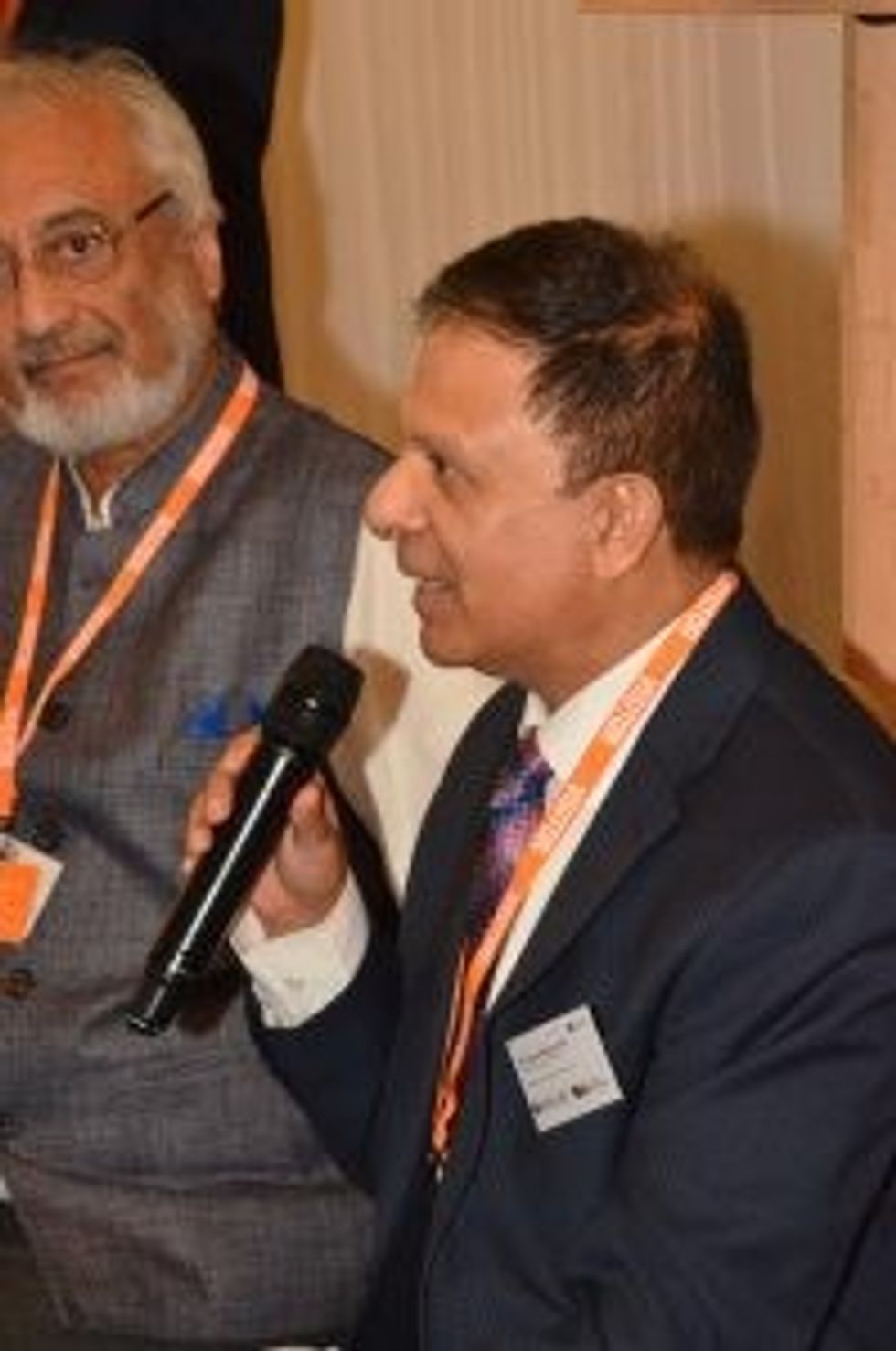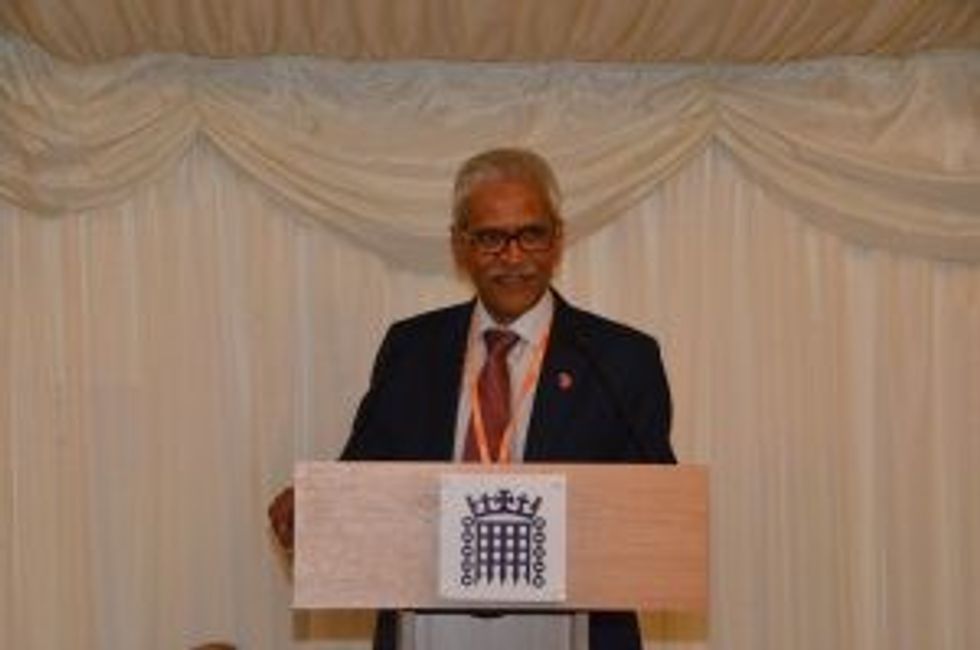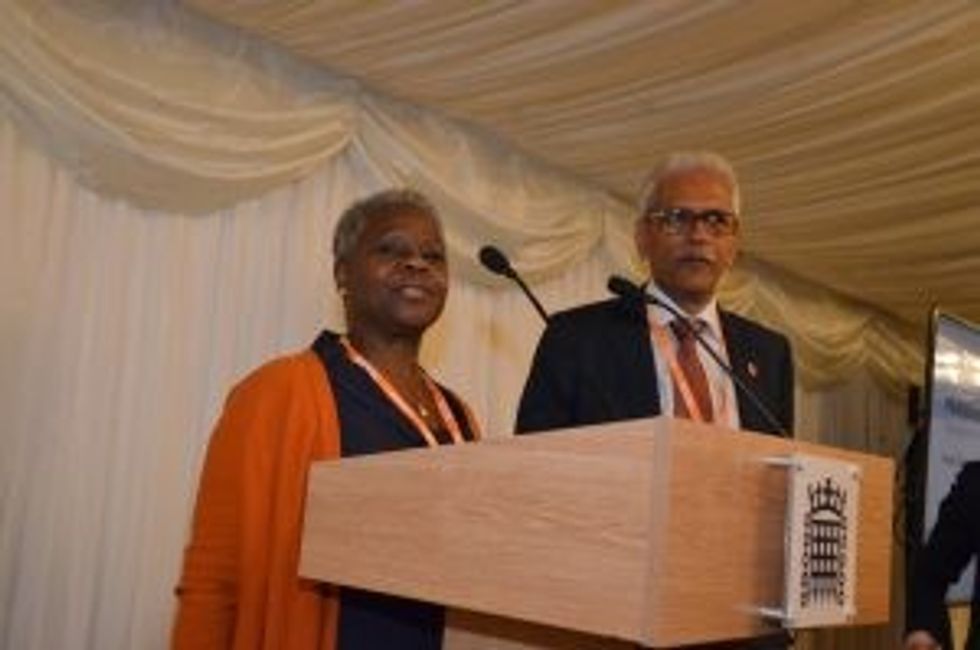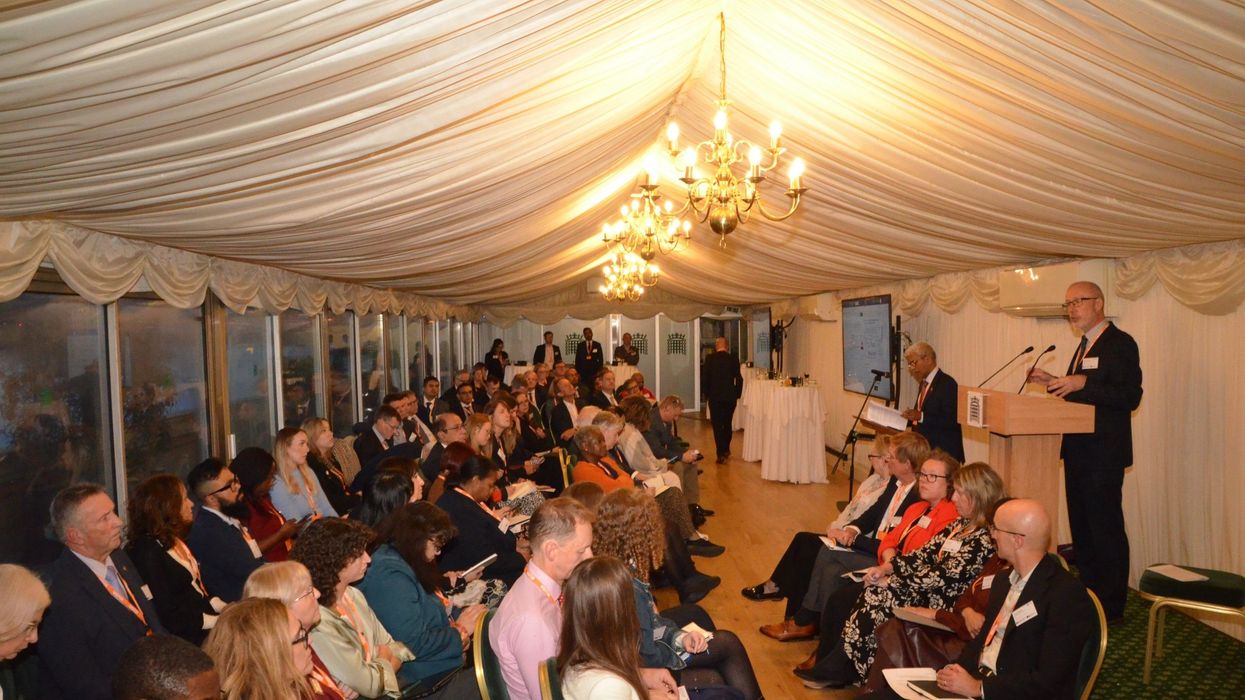He stresses the need to address structural barriers that prevent effective collaboration between community pharmacy and GPs
Dr Chaand Nagpaul, former chair of the British Medical Association (BMA), has suggested aligning elements of community pharmacy and general practice contracts - especially for some care pathways - to facilitate better management of patient conditions and improve overall healthcare outcomes.
Speaking as a panel member at one of the sessions of the Multidisciplinary and Multiprofessional Healthcare Forum, held at the House of Commons on Monday (28) the senior general practitioner and BMJ Commissioner pointed out structural barriers preventing effective collaboration between healthcare professionals.
“The NHS’s IT system is woefully deficient, so we need to get that right,” he said.
He highlighted that information from pharmacy services, such as Pharmacy First consultations and flu vaccinations, don’t automatically update into GP records, which complicates patient management and leads to inefficiencies, such as duplicating flu vaccinations.
“It’s nonsensical that my practice is trying to manage high blood pressure, and the same patient could see a pharmacist for that same problem . We need to have systems, but to get that system correct and working, you need to have interoperability.”
Dr Nagpaul suggested that integrating systems and joining some contracts would support a more cohesive approach and better patient outcomes.
Nearly 80 senior healthcare professionals from various disciplines and sectors, attended the forum, which was hosted by Matt Turmaine, MP for Watford and sponsored by Sigma Pharmaceuticals.

Future of the NHS
Professor Mahendra Patel, Director of the Centre for Research Equity (CfRE) at the University of Oxford and professional advisor to the Chief Pharmaceutical Officer for NHS England, opened the forum emphasising the need for multidisciplinary collaboration in shaping the future of healthcare.
Professor Patel said that the NHS faces immense challenges, buts also tremendous opportunities as it embarks on a 10-year plan for reform.
He said: “The goal of the forum is to leverage our collective expertise as healthcare professionals, policymakers and leaders to drive multidisciplinary collaboration that will make these reforms both practical and transformative.”
Professor Patel emphasised that whilst general practice provides an essential foundation of care in primary care, they cannot act alone.
He stated that dentistry, optometry, and community pharmacy must be fully integrated into the wider healthcare system.

Sir David Haslam, the former chair of the National Institute for Health and Care Excellence (NICE) and past president of the Royal College of General Practitioners (RCGP), delivered a video message emphasising the urgent need for the NHS to address waste and duplication.
He cautioned that focusing on one area, such as rapid GP access, often compromises continuity of care and quality.
To solve the “quality, affordability and access” trilemma, Haslam advocated for a collaborative approach that leverages the full potential of multidisciplinary teams and engages with patients as well as different sectors of the NHS.
“We do now have the perfect opportunity to work together across disciplines, across sectors, to determine where we're going and how we're going to get there,” he stated.
Dr. Bharat Shah CBE, co-founder of Sigma Pharmaceuticals, believes that multidisciplinary healthcare and integrated care can help consolidate evidence for creating a health service that is fit for the future.
He said: “As a pharmacist of many years, I have been passionate and forever committed to working towards a better NHS. Now more than ever, we are determined to support the agenda of healthcare professionals working as closely as possible to ensure we have a seamless health system that can benefit all.”
Turmaine acknowledged that one of the most frequently raised concerns among his constituents is the cost-of-living crisis, closely followed NHS access issues, including difficulties in securing GP and dental appointments.
He also pointed out that access to social care and resources for transitioning patients from hospitals to community settings as other critical challenges.
“The health and social care system does need fixing,” he said, assuring that the government is committed to addressing this issue.
“Health Secretary Wes Streeting has made repeated commitments that the government is determined to do what is necessary to fix the NHS. He will certainly be doing that,” the MP added.
Professional Leadership in Healthcare
In the first session of the conference, an expert panel explored the role of inclusive professional leadership in driving system-wide changes.
Paul Bennett, CEO of the Royal Pharmaceutical Society (RPS) and a pharmacist, highlighted that professional leadership organisations face significant challenges in working collaboratively.
Urging pharmacy professionals to embrace a more unified approach, Bennett advocated creative thinking and dialogue through initiatives like round tables to address shared challenges, noting that such collaborative discussions often “reveal a shared challenge that can be overcome collectively.”
Dr. Jeanette Dickson, chair of the Academy of Medical Royal Colleges (AOMRC), emphasised the necessity of creating a unified "health and care tribe" rather than maintaining five separate tribes to enhance patient outcomes.
She stressed that different healthcare sectors should stop competing against each other and instead focus on improving patient care and securing better resources.
“We need to break down silos and look at everybody involved, not just those who are traditionally seen as the health and care delivery team,” she said.
“Dentists, pharmacists, and allied health professionals are not an afterthought; they need to be integral to the team.”

Meanwhile, Professor Dame Donna Kinnair, former chief executive and general secretary of the Royal College of Nursing (RCN), addressed the constraints faced by nurses, including regulatory limitations and the need for systemic changes.
She stressed the importance of improving education and registration to enable healthcare professionals to work more effectively within multidisciplinary teams.
“It doesn't matter if every pharmacist can prescribe because I've been able to prescribe since 2000, but our systems are not set up to allow prescribing in the home without backtracking to the GP.
“So, it doesn't matter what we put on top or what systems we create, we have to have a pathway to be able to utilize it,” she said.
Kerrie Phipps, National Allied Health Professionals Lead Primary and Community Care Wales, emphasised the importance of person-centered care and prevention in healthcare, and advocated for a multi-professional approach to support holistic care and address population health needs.
“We need to be working at a systematic level, at all levels, so that we support all levels of intervention.”
“In Wales, we've moved away from a multidisciplinary approach to a multi-professional model, enabling everyone in the field to work professionally and fully optimise their skill sets,” she stated.
Culture of fear
Dr Nagpaul highlighted three main areas that the NHS needs to address as the government works on its 10-year plan to transform the country’s health service.
He stated there was a culture of fear and blame in the healthcare system, which discourages whistleblowing and contributes to inefficiencies.
“You have a culture where most healthcare professionals are scared to speak out. So, you do not actually contribute to safety, because you think you'll be blamed instead. And I think that has to change,” he said.
“All of us working in the health in the healthcare system are working under incredible constraints. We have a lack of time as a GP, I see patients at 10-minute intervals. I can't do them justice.
“Nine out of 10 doctors say they're afraid of making a mistake every day at work, and yet they believe that if anything goes wrong, the system will blame them for the inadequacies of the system itself.”
He underscored the need for a system that encourages and rewards individuals for whistleblowing and for contributing to the improvement of the system.
Secondly, Dr Nagpaul highlighted structural barriers in the healthcare system that prevent different healthcare professionals from working together.
For instance, he said, district and community nurses cannot administer flu vaccinations due to contract limitations.
Additionally, hospital psychiatrists, like JS, are unable to prescribe necessary medications for patients with dementia because the costs must be covered by the GP budget, forcing these patients to schedule an appointment with a GP.
Moreover, hospital doctors cannot directly refer patients to another hospital without going through a GP.
“The system is highly inefficient and full of bureaucracy and duplication. Thirty percent of my appointments are wasted because of this sort of bureaucratic, administrative workload,” he added.
He also emphasised the need for addressing inequalities, particularly racism that is significantly impacting the workforce.
“Tackling racism is everyone's business because it reduces the workforce, productivity, and raises risks of medical error,” he stated.
Dr Nagpaul presented data that showed that 9% of doctors have left the NHS early due to racism, 16% have taken sick leave, and 23% are considering leaving.
“Incivility reduces cognitive function by 61%. If you feel stressed and burnt out, you've got a 45 to 63% greater risk of medical error. So, we have to have a workforce that feels supported in a compassionate environment that brings out the best potential of each and every one of us,” he added.










